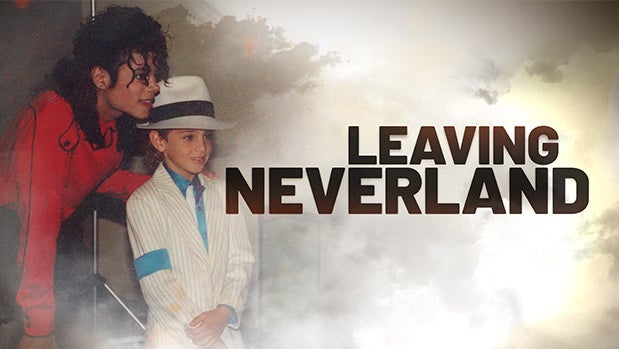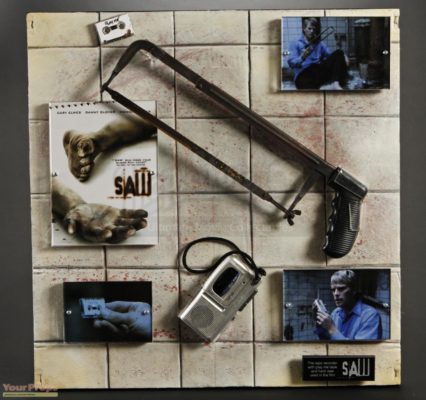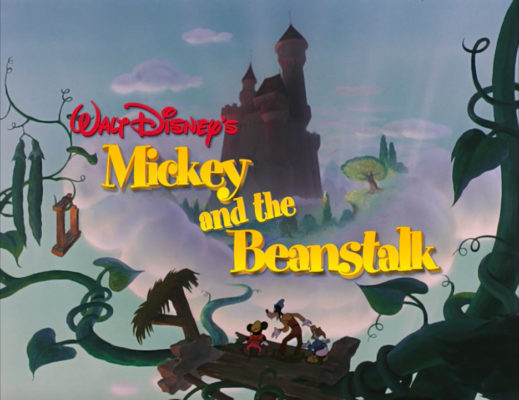This HBO documentary has enough creepy moments that it’s hard for a single one to stand out.
But imagine that your kid brother is living a real-life fairytale: he’s pals with the world’s biggest music star, hanging out at the guy’s mansion, eating ice-cream and playing videogames with him, hearing secrets worthy of Vanity Fair. It sounds unbelievable, like a tale from the playground’s biggest bullshitter (“I’m going steady with Miss America! No, you can’t meet her, she goes to another school!”) but this is actually happening to your brother. It’s enough to make you believe in magic.
Years later, you turn on the TV: a child like your younger brother is accusing the pop star of abusing him.
Wouldn’t your brain implode? The fairytale is gone, the wondrous years written over with a new and sinister context. Was this happening to your younger brother, all that time? Those holidays and fun-park rides and sleepovers…were they camouflage for this?
That’s the situation the brother of Wade Robson (one of this documentary’s two subjects, with the other being James Safechuck) found himself in 1993. It’s emblematic of how the Michael Jackson story has ended: too good to be true. I’ve heard alcohol described as a way of robbing happiness from tomorrow. Michael Jackson was cultural alcohol: the past was fun; but now the hangover has arrived. Although MJ may have also removed happiness from some peoples’ present, too.
I grew up in the 90s, when he seemed terrifying: a raceless, genderless skeleton with bleached skin and a face crafted from paper mache. I thought it was funny when they called him a “sex symbol”. For whom? Department store mannequins?
Had I grown up in the 80s I might have had different memories: the impossibly talented vocal ninja who (along with Quincy Jones) created large parts of the 80s as they are now remembered.
But even at the height of his career there was something strange about Michael, as though every camera was looking straight through him, missing large parts of the truth. In 1984 he swept up eight Grammy awards for Thriller (which had sold thirty-four million copies in twenty months), and was accompanied at the awards ceremony by Brooke Shields, then one of the most desirable women on the planet. He spent the evening ignoring her in favor of twelve-year-old Emmanuel Lewis, who sat on his lap.
Things deteriorated after Jones left his life. In the nineties he gained a reputation as a gifted but eccentric and even faintly sinister man – Howard Hughes with a surgically reconstructed nose. The tabloids (sensing skeletons in the Neverland closet) aggressively hounded him, and this became the narrative upheld by fans to this day: poor Michael Jackson, harassed by the media. Can’t they just leave him alone? If Leaving Neverland is true, the media didn’t chase him nearly hard enough.
It’s a documentary about narratives that are not exactly false or true but blends of the two: it doesn’t hide (for example) the fact that Safechuck and Robson testified that Michael Jackson never touched them during the 1993 Jim Chandler trial. However, it sets this in the context that they’d each been Michael’s favorite and they each wanted to be his favorite again. They wanted his approval, his love, and so when Michael told them what to say, they said it.
The documentary runs for four long hours. There’s a lot of biographical detail on two people you’ve probably never heard of unless you’re a hardcore Jacko defender with his entire legal saga pinned on the wall with red tape (in which case your opinions about Safechuck and Robson are probably negative). At first the homespun folksy stories of S&R’s childhoods seem pointless, but they quickly prove their worth: Jackson is such a massive figure that it’s easy for everyone in his orbit to seem like a 2D cutouts, as inhuman as the dancing zombies in “Thriller”. The director wants to make the accusers seem like people you know.
It worked. I believe them: their stories sound credible and are backed by a decent amount of evidence. Misremembering a date or a location is typical when twenty five years have passed. So is feeling affection for one’s molester.
There’s detailed descriptions of sex acts. A word of advice: if you don’t want to hear the sentence “in Paris, he introduced me to masturbation”, watch something else. Equally disturbing are the faxes Michael sent the boys, and the desperate manipulation he apparently tried towards the end to stop his entire house of cards collapsing.
The truth, as near as I can tell, is that Michael Jackson was probably a pedophile and his defenders were wrong. Their webpages and blog posts and Facebook groups (“TOP 10 PROVEN SAFECHUCK LIES!!! #MJINNOCENT”) are barricades built to defend an imaginary man who lives in their heads and nowhere else.
Where does that leave Michael Jackson in the year 2020? Is he “cancelled”? Is that even possible? There’s a psychological term called “splitting” – an inability to view people as having both good and bad sides. Michael’s strongest defenders clearly love his music, and certain aspects of his personality (philanthropy, generosity, etc) inspired them. Claims that he molested children represent a threat to that image of Michael – their Michael – and so they argue themselves into logical pretzels defending him.
It doesn’t have to be that way. You can still enjoy Michael’s music (and be inspired by the positive sides to his character) without retreating into solipsistic delusion. Michael was always good at making people become better versions of themselves, and we become better when we embrace the truth. Watch Finding Neverland and let Michael Jackson change your life one final time.
No Comments »
‘The chain in those handcuffs is high-tensile steel. It’d take you ten minutes to hack through it with this. Now, if you’re lucky, you could hack through your ankle in five minutes. Go.’ – Max Rockatansky
One man chains another to a pipe in a burning building (or in some other place that will kill him if he doesn’t escape). He gives the chained man a hacksaw and a choice: cut through the chain, or cut through a limb.
This scenario appears in George Miller’s apocalyptic film Mad Max. It also appears in Alan Moore’s Watchmen (likely as a homage or parody), where Rorschach kills the sadistic pedophile Grice.
Hurling the dogs’ corpses at Grice, Rorschach then handcuffed the man to a pipe and doused the room with kerosene. After handing Grice a hacksaw and stating that it would be futile for Grice to attempt to cut through the handcuffs (implying that he would have to cut off his hand), Rorschach set fire to the room and exited the house. He watched outside for over an hour in the unlikely event that Grice might free himself in time; Grice did not survive. – Watchmen Wiki
It also appears in the first Saw movie.
Adam finds a bag containing two hacksaws inside the toilet, which they try to use to cut through their chains, but Adam’s saw breaks. Lawrence realizes the saws are meant to be used on their feet, and identifies their captor as the Jigsaw Killer, whom Lawrence knows of because he was once a suspect. – Wikipedia
It’s as brutal an act as one can imagine, but it has an element of chivalry (and moral exculpation). After all, the chained man has a chance to live. If he dies, it’s because he didn’t want it enough.
…Or does he? The man who chained you up a) wants to kill you and b) controls every aspect of the scenario you’re in. Would he give you a hacksaw if there was any way you could escape in time, however remote? Maybe he wants you to die in terrible pain, with a hacksaw buried in your leg.
This is such a weirdly common (and specific) trope in fiction that I started wondering when it first appeared. Where’s hacksaw zero? Is there an ur-hacksaw scene that predates all others?
I might have found it. Ironically, in a book that was never actually written.
The 120 Days of Sodom is the legendary and never-completed epic by 18th century aristocrat Marquis de Sade. Written on a single roll of paper while its author was imprisoned in the Bastille, its production was interrupted in 1789 by the French Revolution. Only the first part is extant: the second and third parts exist in outline form.
In the third part, we come across this scene:
“He chains one of the girl’s hands and secures the chain to the wall; he leaves her thus, without food. Near her is a large knife, and just beyond her reach sits an excellent meal: if she wishes to eat, she has but to cut through her forearm; otherwise, she dies of starvation. Prior to this he has embuggered her. He observes her through a window.”
This has some interesting parallels to Mad Max.
- The chain
- The cutting instrument
- The “ticking clock” (in this case, the girl’s own biological processes: she’ll starve if she doesn’t escape)
- The victim must self-mutilate
It has some differences.
- A knife is not a hacksaw.
- Cutting through the chain isn’t suggested as a possibility (although she probably would have tried)
- The girl won’t become free if she cuts off her forearm. She will have earned a meal, and will then be subjected to further tortures.
There’s another big difference between this scene and its later incarnations.
Max Rockatansky and Rorschach are (dark) heroes. Even Jigsaw is given some odd philosophical motivations for his deeds. Nothing like this exists for the barbarous noblemen of Sodom, who have retired to a chateau in Germany to destroy as many young lives as possible. Their evil is a black hole, existing beyond any reasonable motive.
Another Frenchman, Jean-Baptiste Say, once said that supply creates its own demand. In the Marquis’s case, the same holds true for sadism. When men have knives, they use them.
No Comments »
“Jack and the Beanstalk” is the American Psycho of fairy tales.
The hero breaks into a man’s house, steals his possessions, and murders him when caught in the deed. Most retellings add a clumsy exculpatory backstory (the giant killed Jack’s father, or something), but the tale has enough malevolence to be an interesting choice for one of the Disney studio’s “fairytale + mouse” adaptions.
Mickey and the Beanstalk was released with center billing in 1947’s Fun and Fancy Free, and re-cut for TV several times with different narrators, including Ludwig Von Drake, Shari Lewis, and Winnie the Pooh voice actor Sterling Holloway. The tale begins in Happy Valley, where “all the world is gay”. The gayness stems from a magical harp, which is stolen one fateful night. The crops fail and the river dries up, leaving three unfortunate peasants (Mickey Mouse, Donald Duck, and Goofy) facing starvation. There’s a hilarious gag involving Mickey Mouse slicing transparently thin sandwiches from a single slice of bread.
Mickey foolishly trades their last cow for some magic beans, which grow into a huge beanstalk, reaching up into the clouds and a giant’s castle. The giant is one hell of a dude: you’d think merely being a giant would be enough, but he also possesses magical powers allowing him to fly or transform into anything. It’s like the Tommy Lee/Pam Anderson sex tape, where we discover that, in addition to being a millionaire rockstar, Tommy Lee also has a huge penis. Some guys get all the luck.
Mickey’s plan to trick the giant into turning into a fly and swatting him fails, and Donald and Goofy are locked inside a snuff box. This leads to the film’s most nail-biting moment – Mickey stealing the key from the giant’s pocket while he sleeps. It’s unfortunately necessary to kill the giant at this point, which they achieve through a method that doesn’t make a lot of sense given what we know about his powers.
Mickey and the Beanstalk is well animated, well conceived, and has some laughs. If I had a complaint, it doesn’t find a use for Goofy. Disney’s “big three” are types: Mickey is the straight man, Donald is angry, spiteful, and insecure, and Goofy is the good-natured fool. The latter role is filled by the giant, giving Goofy nothing to do (except a cute scene where he tries to rescue his hat from a giant-sized block of jelly).
There is (perhaps) a deeper level to this film than I initially thought.
In 1913, an aqueduct was built, diverting the Owens River to Los Angeles. This enabled La-La Land to grow to its current size, but it had a dark side: Owens Lake completely dried up, devastating Owens Valley and ruining the livelihood of many farmers. The man responsible for this was William Mulholland. It might be a coincidence, but the name of the giant is “Big Willie”. I also note that Owens Lake is only a three hour drive from Burbank.
No Comments »



